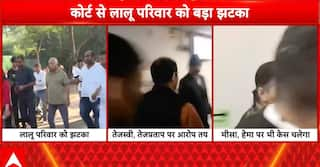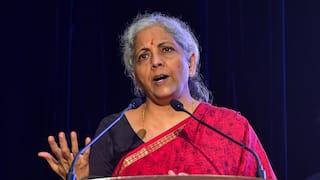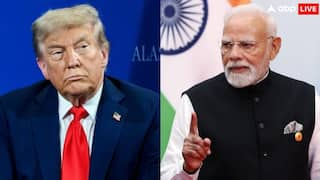Far Reaching Implications: Centre Urges SC To Make States, UTs Party To Same-Sex Marriage Case
The Centre has urged the Supreme Court to make all states and Union Territories (UTs) a party in the ongoing hearing on the legal validation of same-sex marriages.

Same-Sex Marriage Case: The Centre on Wednesday requested the Supreme Court to join all states and Union Territories (UTs) as a party in the ongoing hearing on the legal validation of same-sex marriages, reported IANS. The top court’s Constitution bench comprising five justices –headed by CJI DY Chandrachud, on Tuesday began hearing the batch of pleas seeking legalisation of same-sex marriage in the country.
However, the Centre filed a fresh affidavit and said, as quoted by IANS: "The Union of India, reiterates its request to join all states and Union Territories as a party to the present case, invite the views of the various states on the present issue, which clearly falls within their legislative domain and only thereafter, proceed to decide the question before the Hon'ble Court".
As per the report, the affidavit said the present matter and issue delineated by this court, even when limited to the Special Marriage Act, 1954, entails the purported judicial creation of a social institution called "marriage" of a different kind than contemplated under the existing law.
"That is submitted that the framers of the Constitution have specifically provided for a separate Entry in the Concurrent List which is a part of the Seventh Schedule of the Constitution of India conferring a constitutional function of legislating with respect to this institution of marriage, the requisite conditions for a valid marriage, regulations of such institutions like making provisions for divorce, alimony etc", it added.
"Therefore, it is clear that the rights of the States, especially the right to legislate on the subject, will be affected by any decision on the subject...various States have already legislated on the subject through delegated legislations, therefore making them a necessary and proper party to be heard in the present case," the Affidavit says, as quoted by Live Law.
It further added, "The Union of India, in the absence of notice to the states and Union Territories on the present issues, has started the exercise of consultation with all the states, in order to ascertain the views of the states on the said issue. It is submitted that the Union of India, has issued a letter dated 18.04.2023 to all states inviting comments and views on the seminal issue raised in the present batch of petition".
The Centre stated that the issue goes to the root of the present matter and has far-reaching implications. "It is therefore humbly requested that all states and Union Territories be made a party to the present proceedings and their respective stance be taken on record and in the alternative, allow the Union of India, to finish the consultative process with the states, obtains their views/apprehensions, compile the same and place it on record before this Hon'ble Court, and only thereafter adjudicate on the present issue", said the Centre in the affidavit.
The affidavit submitted that any decision on same-sex marriage without making states a party, without specifically obtaining their opinion on it, would render the present adversarial exercise incomplete and truncated.
"It is submitted that in light of the above, a prayer was made before this Hon'ble Court, to make all states a party to the present litigation and invite their respective stands on the said issue during the hearing on 18.04.2023. It is submitted that despite the said constitutional, jurisprudentially and logically fair request being made, this Hon'ble Court is not pleased to rule upon the same", it added.
The affidavit stated, "It is clear that the rights of the states, especially the right to legislate on the subject, will be affected by any decision on the subject. It is submitted that further, various states have already legislated on the subject through delegated legislations, therefore making them a necessary and proper party to be heard in the present case".
The Centre argued, as mentioned in the IANS report, that in such a matter wherein legislative rights of the states under the Seventh Schedule and the rights of the residents of the states are clearly in question, it was the bounden duty of the petitioners to make all states a party to the present litigation.





































